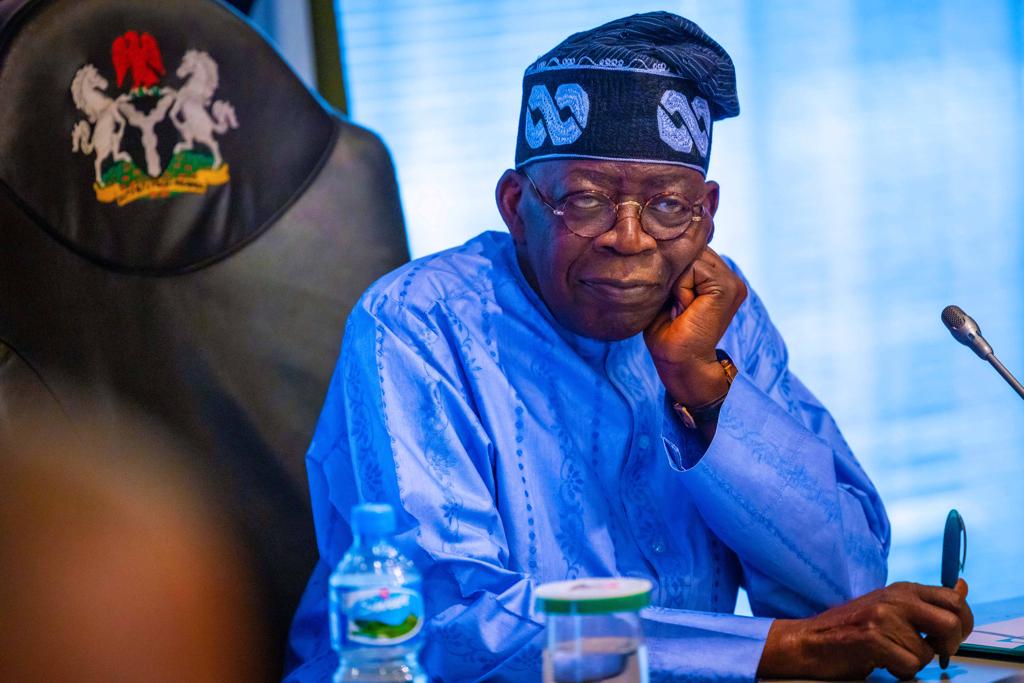Victoria Bisset
,
Julian Duplain
and
Updated July 9, 2022 at 8:36 p.m. EDT|Published
July 9, 2022 at 4:42 a.m. EDT
NUSA DUA, Indonesia — Secretary of State Antony Blinken on Saturday criticized China’s “alignment” with Russia, following talks with his Chinese counterpart, Wang Yi. Blinken accused China of regurgitating Russian propaganda about the invasion of Ukraine, and questioned how any country could be neutral in the face of Moscow’s aggression. The meeting was Blinken’s first face-to-face engagement with Wang since October.
The Group of 20 summit ended Friday without a traditional communique, or even a group photo, in a sign of the deep divisions among the world’s largest economies caused by Russia’s war in Ukraine. Western diplomats condemned Moscow’s blockade of millions of tons of grain held in Ukrainian ports, the catalyst for rising global food prices. Russian Foreign Minister Sergei Lavrov, who walked out of Friday’s G-20 sessions twice, accused his Western counterparts of “rabid Russophobia.”
Russian President Vladimir Putin warned that further Western sanctions could be “catastrophic” for global energy markets and consumers. “Sanctions restrictions on Russia cause much more damage to those countries that impose them,” he told a meeting of Russia’s oil and gas leaders Friday.
Here’s what else to know
- During a visit to the CIA headquarters Friday, Biden praised the agency for its work enabling the United States to “forewarn the world what Vladimir Putin was planning in Ukraine.”
- The first Ukrainian soldiers have arrived in the U.K. for what Defense Minister Ben Wallace called an “ambitious new training program” that is eventually expected to prepare 10,000 recruits for front-line combat.
- Ukrainian President Volodymyr Zelensky sacked more than a dozen foreign envoys, including Kyiv’s often-abrasive ambassador to Germany.
Canada to return sanctioned Russian gas turbine to Germany
TORONTO — Canada said Saturday that it will export a sanctioned Russian gas turbine back to Germany in a decision poised to upset Ukraine, which pressed Ottawa not to skirt the sanctions it has levied on Moscow.
The turbine, built in Canada by Germany’s Siemens Energy, helps pump gas through the Nord Stream 1 pipeline, which runs from Russia to Germany under the Baltic Sea.
The equipment was being repaired in Montreal when it became stranded because of restrictions that Canada imposed on Russian industry after the full-scale invasion of Ukraine. Gazprom, Russia’s state-controlled gas company, cited the missing turbine when it cut flows to Europe last month.
Jonathan Wilkinson, Canada’s natural resources minister, said in a statement Saturday that the country will grant a “time-limited and revocable” permit to Siemens Canada to return the repaired turbine to Germany.
“Absent a necessary supply of natural gas, the German economy will suffer very significant hardship,” he said, “and Germans themselves will be at risk of being unable to heat their homes as winter approaches.”
Debate over the turbine saw Canada caught between two allies: Germany, which pushed it to return the turbine so it could stockpile gas before winter amid fears of energy rationing, and Ukraine. Germany has also been looking to Canada as a potential energy source as it weans itself off Russian energy.
Canada is home to the world’s second-largest Ukrainian diaspora community.
Alexandra Chyczij, national president of the Ukrainian Canadian Congress, said she was “deeply disappointed” by Canada’s “decision to bow to Russian blackmail” and “energy terrorism.”
“In acceding to Germany’s request, Canada will not only contravene its policy of isolating Russia,” she said in a statement. “It will set a dangerous precedent that will lead to the weakening of the sanctions regime imposed on Russia.”
Canada has imposed sanctions on more than 1,150 Russians, Belarusians and Ukrainians since Russia invaded Ukraine in February. It said Saturday that it would expand existing sanctions on Russia’s oil and gas sector to industrial manufacturing, including land and pipeline transport.
Russia and Ukraine responsible for March nursing home attack, U.N. says
Russian and Ukrainian forces were responsible for a March attack that destroyed a nursing home in the Luhansk region, according to a new U.N. report.
Russian-backed forces attacked the nursing home on March 11 while patients and staffers were inside. Days earlier, the nursing home’s management requested multiple times that authorities evacuate its residents, but Ukrainian forces had already mined and surrounded the area, according to the report from the Office of the U.N. High Commissioner for Human Rights (OHCHR) published June 29.
Ukrainian soldiers entered the care home March 7, the report said, because its location had “strategic value.” Two days later, they exchanged fire with approaching Russian forces, but the report said “it remains unclear which side opened fire first.”
During the second exchange on March 11, 71 patients and 15 staff members were inside the nursing home as the attack began, according to the report. A fire also broke out while fighting ensued.
Dozens were killed, but the exact number is still unknown, the report said. At least 22 patients survived.
The OHCHR said the nursing home attack was “emblematic” of its concerns that both Russian and Ukrainian armed forces were using “human shields.”
The office defines human shields as using civilians to “render certain points or areas immune from military operations,” which is prohibited by the Geneva Conventions.
Russian missiles strike several residential areas, Zelensky says
Russian missiles struck residential areas in Kharkiv, Mykolaiv and Dnipropetrovsk, killing and wounding civilians on Saturday, Ukrainian President Volodymyr Zelensky said in his nightly address.
The attacks were “fired precisely at the residential sector,” Zelensky said, including in his hometown Kryvyi Rih, which he visited Friday.
Kryvyi Rih Mayor Oleksandr Vilkul said on Facebook that a 20-year-old woman died in a hospital from injuries after a strike in the city. Valentyn Reznichenko, the governor of Dnipropetrovsk, said on Telegram that the attack in Kryvyi Rih killed at least two people — including the 20-year-old woman — and injured three.
It is unclear the exact number of injuries and casualties in Mykolaiv, according to a Telegram message from Vitaliy Kim, the regional governor.
Zelensky said in his address Saturday that the Russian strikes can only be halted with “high-precision and potent” weapons, and he included his thanks to the United States for its $400 million military assistance package.
The package, which the Pentagon announced Friday, includes four high-mobility artillery rocket systems, also known as HIMARS. The United States has delivered eight HIMARS to Kyiv.
Zelensky sacks envoys, including combative ambassador to Germany
Ukrainian President Volodymyr Zelensky has dismissed more than a half-dozen of Kyiv’s foreign diplomats, including Andrij Melnyk, who has served as the country’s ambassador to Germany since 2014.
In a flurry of presidential decrees posted Saturday, Zelensky’s office also announced the dismissals of ambassadors to Bangladesh, the Czech Republic, Hungary, India, Maldives, Nepal, Norway and Sri Lanka.
Zelensky addressed the series of decrees in his nightly address Saturday, saying the Ministry of Foreign Affairs is preparing new ambassador candidates.
“This rotation is a normal part of diplomatic practice,” he said.
Reports had swirled in recent days that Melnyk’s dismissal in particular was imminent. As a long-serving envoy, Melnyk had fiercely defended his country’s interests abroad, but he also caused controversy for his blunt remarks and sometimes caustic public style. He clashed with Ukraine’s German allies and blasted Berlin for its “hesitant” response to Russia’s invasion of Ukraine.
“I don’t give a damn what they think. I’m not here for a beauty competition,” Melnyk told The Washington Post in an interview in June. “If anyone feels offended, I don’t really care. My only task is to tell people the truth of what is happening and this catastrophic situation in my country.”
Most recently, Melnyk gave remarks praising Stepan Bandera, the polarizing World War II-era Ukrainian nationalist leader responsible for ethnic cleansing campaigns against Polish and Jewish people.
Andrij #Melnyk´s, Ukrainian ambassador to Germany, with disturbing statements about the history of Ukrainian national hero Stepan #Bandera.
The world should know about this worship of fascists up to the highest political levels.
Ukrainian Foreign Ministry had to distance itself. pic.twitter.com/Yr0bVLj90X— Markus Haintz (@MarkusHaintzUSA) July 1, 2022
As Ukraine’s top envoy to Germany, Melnyk held his post for eight years, more than twice the typical tenure of most ambassadors.
Russia changes street name outside U.K. Embassy in Moscow
By Julian Duplain1:00 p.m.
The city authorities in Moscow have renamed the street outside the British Embassy — but the United Kingdom says it does not intend to use the new address.
Signs reading “Luhansk People’s Republic Square” were put up Friday, replacing the current name of Smolenskaya Embankment. The Luhansk People’s Republic is one of two pro-Russian breakaway regions in eastern Ukraine that are only recognized internationally by Russia and its ally Syria. A road junction near the U.S. Embassy in Moscow has already been renamed “Donetsk People’s Republic Square,” referring to the other breakaway region.
“The British government, like the entire international community, does not recognize the so-called Luhansk and Donetsk People’s Republic,” said a statement from the embassy. “The renaming of streets is the responsibility of local authorities but this, of course, will not in any way affect the position of the British government on Russia’s illegal invasion of Ukraine.” The embassy added that it would continue to use its previous address: Smolenskaya Naberezhnaya 10.
There is a long history of attempting to make political points by renaming streets outside diplomatic missions. In the 1980s, the block in front of the Russian ambassador’s residence in Washington was renamed Andrei Sakharov Plaza, for the human rights activist and dissident.
The section outside the Russian Embassy is now Boris Nemtsov Plaza, after the opposition leader who was shot dead in 2015, and the Saudi Embassy is located on Jamal Khashoggi Way, honoring the slain journalist. In Iran, the British Embassy found itself on Bobby Sands Street, renamed in 1981 after the Irish republican hunger striker in an effort to annoy London.
Street addresses outside Russian embassies and consulates in Albania, Canada, the Czech Republic, Iceland, Latvia, Lithuania and Norway have all been changed in recent months to mark the invasion of Ukraine. However, proposals from the Liberal Democrats in Britain for a similar name change for the street where the Russian Embassy is located in upmarket South Kensington have so far come to nothing.
‘Operational pause’ does not mean fighting ceases, analysts say
By Julian Duplain11:30 a.m.
The Luhansk regional governor’s statement that Russian forces were not conducting an “operational pause,” amid continued shelling in Ukraine’s east, “likely reflects confusion about the meaning of the expression” and how such a pause manifests on the ground during a war, according to the Washington-based Institute for the Study of War (ISW).
The governor, Serhiy Hadai, on Friday said there had “not been any kind of operational pause or reduction in shelling” as Russian forces, including tank units, continued their attempts to advance.
However, in an assessment published Friday, the ISW clarified that an operational pause does not imply a complete cessation of military activity. Such pauses are often alternated between different locations or different units to ensure continuous pressure while providing space for rest or reinforcement, without losing an overall strategic initiative.
Russian troops who had taken control of the cities of Severodonetsk and Lysychansk, completing Moscow’s seizure of the Luhansk region, need to rest and resupply, the ISW said. But smaller-scale operations are continuing along the front line, with the aim of preventing Ukraine taking any advantage during this period. The ISW added that the transition out of the operational pause may be intentionally gradual and difficult to discern by opposing forces, just like the transition into it.
Meanwhile, Russia is moving reserve forces from across the country and positioning them near Ukraine for future assaults, continuing its use of older or obsolete equipment, the British Defense Ministry said in its latest briefing.
Donetsk governor reports Russian strikes on several towns
By Julian Duplain10:02 a.m.
Russian missiles and shells hit several towns in the Donetsk region on Saturday, governor Pavlo Kyrylenko said in an update on the Telegram messaging app.
In Druzhkivka — which is behind the current front line as Russian forces try to push farther west — the hospital, Palace of Culture and residential buildings were hit, he said. He also said homes were hit in Slovyansk and Hirnyk, while a train station in Chasovoy Yar was targeted.
In an earlier update, he said that five civilians were killed and eight injured on Friday. Kyrylenko has been urging all residents of his region to evacuate as Russia intensifies its attack.
Russian forces launched an unsuccessful attack against Ukrainian positions about 12 miles north of Slovyansk on Friday, the Washington-based Institute for the Study of War said in a report, citing senior Ukrainian officials.
U.S. announces an extra $368 million in Ukraine humanitarian aid
By Victoria Bisset9:36 a.m.
The United States will provide almost $368 million in additional humanitarian aid to support people affected by the war in Ukraine, Secretary of State Antony Blinken announced Saturday.
More than a quarter of Ukraine’s population have been forced to leave their homes, with 15.7 million people in need of assistance, according to a U.S. government statement.
“Since the beginning of President Putin’s full-scale war in February, the United States has provided over $1.28 billion in humanitarian assistance to address this crisis, and we are the largest single-country donor of humanitarian assistance to Ukraine,” Blinken said.
The majority of the funds will be provided by the State Department, while the rest will come through the U.S. Agency for International Development.
Our commitment to the people of Ukraine is resolute. The United States is providing nearly $368 million in additional humanitarian aid to support people inside Ukraine and refugees forced to flee their country to seek safety in the midst of Russia’s brutal war.
— Secretary Antony Blinken (@SecBlinken) July 9, 2022
Russia left isolated at G-20, Blinken says
By Victoria Bisset8:42 a.m.
Russia was left “isolated” at the Group of 20 summit, Secretary of State Antony Blinken said Saturday.
“We see no signs whatsoever that Russia at this point is prepared to engage in diplomacy,” Blinken told reporters following five hours of talks with his Chinese counterpart, Wang Yi. “If there is an opportunity for diplomacy, we will seize it.”
“There was a strong consensus and Russia was left isolated,” he added, noting that Russian Foreign Minister Sergei Lavrov had left the summit early. Lavrov in turn accused Western nations of “rabid Russophobia.”
Signs of the conflict between the world’s largest economies pervaded Friday’s summit in Indonesia, with no communique issued as talks ended.
But while Western members of the G-20 avoided contact with Lavrov, others did not, with Russia’s foreign ministry sharing photos from his meetings with the foreign ministers of India, Indonesia, Argentina and Brazil.
“The G-7’s plan to boycott Russia at the G-20 failed,” Russian foreign ministry spokeswoman Maria Zakharova said in a Telegram post, in reference to the governments of Canada, France, Germany, Italy, Japan, the United Kingdom and the United States, which have supported Kyiv since the Russian invasion.
First group of Ukrainian soldiers arrives in Britain for training
By Julian Duplain8:09 a.m.
The first group of Ukrainian soldiers has arrived in Britain for a training course that is intended to provide an expected 10,000 volunteers with the skills needed for front-line combat.
The course, described by Defense Minister Ben Wallace as “an ambitious new training program,” mirrors the basic instruction provided for recruits in the British army. About 1,050 British service personnel are running the program at sites across the country, the BBC reports.
Topics to be covered include weapons handling, battlefield first aid, fieldcraft, patrol tactics and the Law of Armed Conflict. Over the past seven years, 22,000 Ukrainian service personnel have been trained by Britain through Operation Orbital.
Up to 10,000 soldiers are expected to take part in the program over the next four months, but Wallace said the number could increase in the future.
Russia continues westward offensive, Luhansk governor says
By Julian Duplain7:33 a.m.
The Russian military is continuing its push westward from Luhansk, according to regional governor Serhiy Haidai, with some “minor successes” Friday. “Russians are firing along the entire front line,” Haidai said early Saturday. “The enemy is trying to advance from the settlements of Luhansk province to the first villages of Donetsk province.”
Russia appears to control all of the Luhansk region, after seizing the city of Severodonetsk in late June. However, there were no confirmed gains as Russia tried to reach Siversk, across the regional boundary in Donetsk, despite continued shelling of the city, according to the Washington-based Institute for the Study of War. The larger towns of Slovyansk, Bakhmut and Kramatorsk further west appear to be Russia’s longer-term objectives, the ISW said.
Russian missiles hit several smaller towns in Donetsk, as well as the city of Slovyansk, damaging buildings and causing some injuries, Donetsk regional governor Pavlo Kyrylenko said on Telegram on Saturday morning.
Battle updates: Russia continues shelling; Siversk could be next target
Slovyansk: Russian forces launched an unsuccessful attack against Ukrainian positions about 12 miles north of this eastern Ukrainian city Friday, the Washington-based Institute for the Study of War (ISW) said in a report, citing senior Ukrainian officials. Russian forces shelled the city Thursday and Friday, the ISW added.
Luhansk: Regional governor Serhiy Haidai on Friday posted images on social media showing destroyed residential buildings and accused Russian forces of indiscriminately shelling towns in Ukraine’s easternmost region.
Severodonetsk: This eastern Ukrainian city is on the brink of a humanitarian crisis, Haidai said Friday, after much of the city was destroyed in fighting. “There is no centralized water, gas or electricity supply,” he wrote on Telegram almost two weeks after Russian forces seized the city. Ukrainian forces announced their withdrawal from Severodonetsk on June 25. Russian forces captured the neighboring city of Lysychansk last week, consolidating their control of the Luhansk region.
Siversk: Russia’s military looks to be concentrating equipment in the direction of the city of Siversk, about five miles from the front line in the eastern region of Donetsk, according to an intelligence update from the British Defense Ministry on Friday. “There is a realistic possibility that Russia’s immediate tactical objective will be Siversk,” the ministry said.
Blinken criticizes China’s support for Russia
NUSA DUA, Indonesia — Secretary of State Antony Blinken on Saturday criticized China’s “alignment” with Russia following more than five hours of talks with his Chinese counterpart, Wang Yi.
Blinken accused China of regurgitating Russian propaganda about its invasion of Ukraine, and questioned how any country could be neutral in the face of Moscow’s aggression.
“We are concerned about the PRC’s alignment with Russia,” he told reporters on the sidelines of a Group of 20 meeting in Bali. “What you hear from Beijing is that it claims to be neutral … it’s pretty hard to be neutral when it comes to this aggression.”
The meeting was Blinken’s first face-to-face engagement with Wang since October. Officials had said the talks were designed to create “guardrails” in the U.S.-China relationship that would ensure competition between the world’s two largest economies does not turn into open conflict.
“There is no substitute for face-to-face … diplomacy, and in a relationship as complex and consequential as the one between the United States and China there is a lot to talk about,” Blinken said before the meeting.
U.S. officials said President Biden and Chinese President Xi Jinping are expected to talk in the coming weeks.
Wang also said it was important to remain in contact with his U.S. counterpart. “China and the United States are two major countries, so it is necessary for the two countries to maintain normal exchanges,” he said.
Biden credits CIA for ability to forewarn world about Putin’s Ukraine plans
Biden visited the CIA’s headquarters in Langley, Va., where he credited its staff for the country’s ability to “forewarn the world” about what Russian President Vladimir Putin was planning in Ukraine.
“You saw the forces that he was amassing, the plans that he was making,” Biden said.
The president met with agency members and its director, William J. Burns, and delivered remarks to mark the celebration of the organization’s 75th anniversary.
CIA officers, Biden said, did not ask for “recognition or personal acclaim, knowing that the quiet bravery of women and men in this agency echoes loudly, all around the world.”
Note: This article have been indexed to our site. We do not claim legitimacy, ownership or copyright of any of the content above. To see the article at original source Click Here













